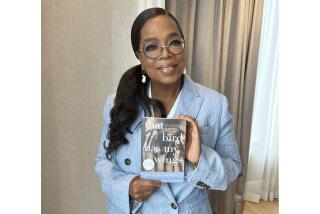Loyd Jowers; Jury Found He Played a Role in King’s Slaying
- Share via
Loyd Jowers, a controversial figure believed by a Memphis jury and the family of the Rev. Martin Luther King Jr. to have played a role in the civil rights leader’s 1968 murder, has died. He was 73.
Jowers, who had lung cancer and had recently suffered a heart attack, died Saturday at Baptist Memorial Hospital in Union City, Tenn., according to his lawyer, Lewis K. Garrison.
Last year Jowers was declared liable in King’s death for having allegedly hired a Memphis police officer as part of a vast conspiracy to assassinate King. In finding that government agencies and unnamed others also were involved, the jury in the wrongful death case essentially accepted the plaintiffs’ argument that James Earl Ray was innocent.
Ray had confessed to the crime after his capture in London two months after the slaying, but recanted a few days later. He died in prison in 1998, after the King family failed to win a new trial for him.
King’s family, haunted by doubts that Ray had acted alone, exulted in the conspiracy verdict against Jowers and others and believed that it vindicated their three-year effort to revive the investigation into the murder.
But others said the trial, which was unusual in several respects, failed to resolve lingering questions over one of the nation’s most agonizing slayings.
Jowers owned Jim’s Grill, a restaurant on the ground floor of a rooming house from which prosecutors said the fatal shot was fired. In 1993 he told reporter Sam Donaldson on the ABC news program “PrimeTime Live” that he was part of a conspiracy to murder King and that he hired someone to do the killing.
He never named the accused shooter, although his lawyer argued that the assassin was not Ray. Jowers claimed he hired King’s killer as a favor to a Mafia friend named Frank Liberto.
Jowers was ill and never appeared during the three-week trial.
The King family was represented by William F. Pepper, the attorney for the confessed assassin, Ray. The trial relied heavily on second- and third-hand accounts, and the judge and jurors were often seen dozing off during testimony.
Inconsistencies between Jowers’ story and that of other witnesses questioned over the years were not presented to the jury, including conflicting statements by Jowers on the race of the assassin he claimed to have hired.
After the trial, Gerald Posner, who wrote a 1998 book concluding that Ray was King’s killer, said the Memphis trial would be “a footnote, at best” in the tangled history of the King case.
King’s survivors were awarded the $100 in damages they had sought and donated the sum to charity. More important than money to them, they said, was the chance to rewrite history.
“This is the period at the end of the sentence,” Dexter Scott King, one of four children of King, said at a news conference the day after the trial ended. “So please, after today, we don’t want questions like, ‘Do you believe James Earl Ray killed your father?’ I’ve been hearing that all my life. No, I don’t, and this is the end of it.”
More to Read
Sign up for Essential California
The most important California stories and recommendations in your inbox every morning.
You may occasionally receive promotional content from the Los Angeles Times.












